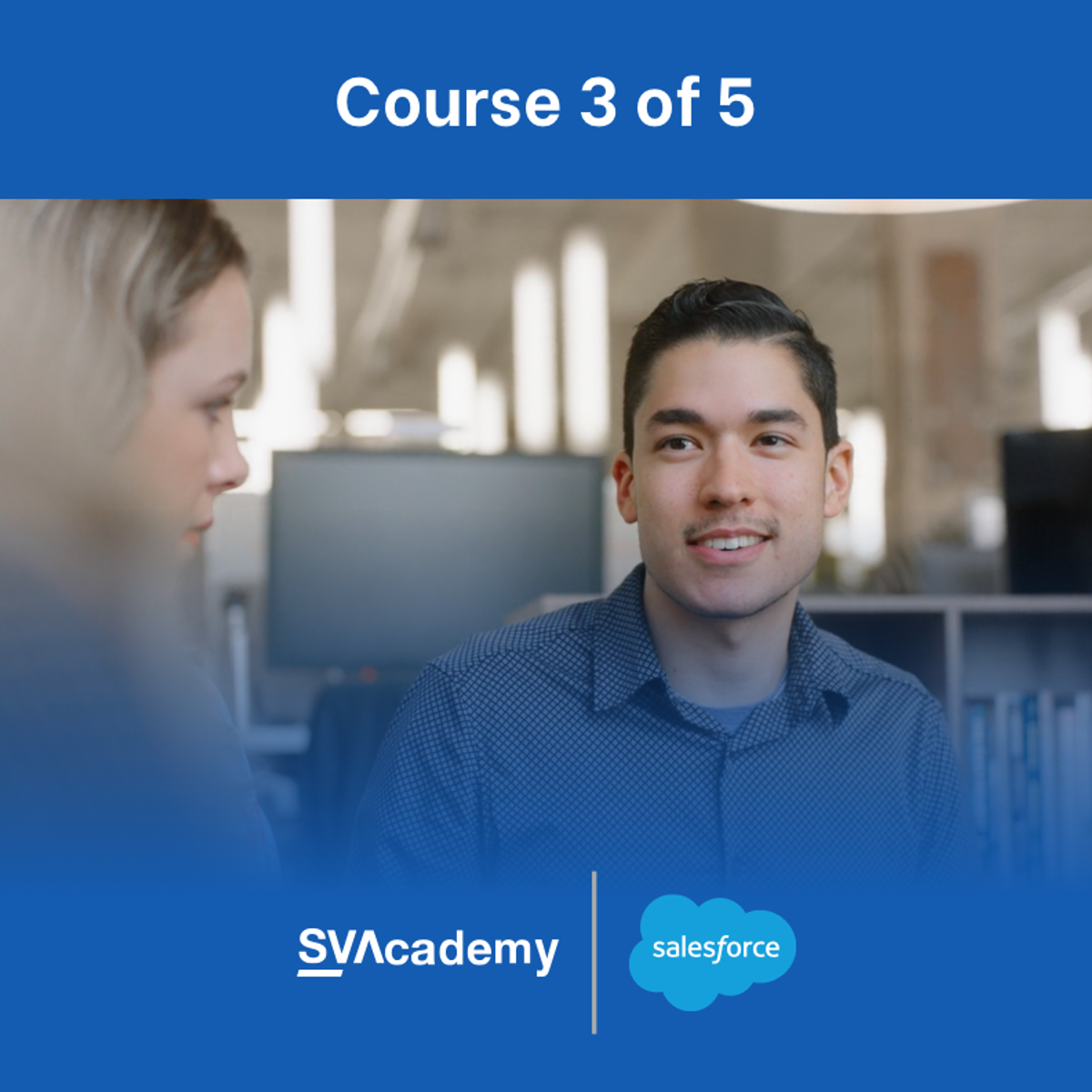Back to Courses









Personal Development Courses - Page 37
Showing results 361-370 of 514

Social Psychology
Ever wonder why people do what they do? This course—which includes more than $1,000 of video and reading materials—offers some answers based on the latest research from social psychology. Students taking the course for a Certificate will also receive free membership in Social Psychology Network (SocialPsychology.org).
COURSE DESCRIPTION FROM PROFESSOR PLOUS:
Each of us is dealt a different hand in life, but we all face similar questions when it comes to human behavior: What leads us to like one person and dislike another? How do conflicts and prejudices develop, and how can they be reduced? Can psychological research help protect the environment, and if so, how? This course offers a brief introduction to classic and contemporary social psychology, covering topics such as decision making, persuasion, group behavior, personal attraction, and factors that promote health and well-being.
Our focus will be on surprising, entertaining, and intriguing research findings that are easy to apply in daily life. The course will also draw from the websites of Social Psychology Network, the world's largest online community devoted to social psychology. I hope you'll join me for this course, have fun, and learn some useful information that enriches your life.

Storying the Self: How Stories Shape our Identities
Explore how artists have come to understand their identities over time, through creative media and scholarly discussions. You will connect with your own sources of creative inspiration, and revisit a major moment in your life that has shaped who you are and how you understand yourself, with the invitation to engage with this story through literary analysis and creative expression. Discover how these themes and theories help leaders understand their own and others’ identities across the full range of human diversity, as they show up in workplaces and relationships.

Fundamentals of Investing
This is primarily aimed at novice investors who want to better understand the concept of investing and how it can fit into their overall financial plan. Taught by a CERTIFIED FINANCIAL PLANNER™ Professional, this course will cover different investment vehicles, risk tolerance, diversification, and the difference between active and passive investing, as well as investment fees and taxes.
Whether you are just getting started investing or want to play a more active role in your investment decisions, this course can provide you the knowledge to feel comfortable in the investing decisions you make for yourself and your family. This course is geared towards learners in the United States of America.

Enhancing Communication with Remind
By the end of this project, you will have set up an account with Remind and be fully prepared to use Remind with your class. Remind allows you to simplify communication by reaching parents using the method that works best for them. By the end of this project, you will have an effective method for communicating with parents or other stakeholders that you can use right away.
*You will need a free Remind account for this project.

Get started with Upwork
In this project you will learn how to use the freelance platform Upwork to find freelance jobs in your area of expertise. Upwork is a platform that will help you get hired for jobs that match your qualifications really easily by having them filtered out for you already. In this guided project you will create a profile in upwork from scratch, you will create a portfolio to show your skills and previous experiences to new potential clients, you will learn everything about billing and getting paid and you will also find jobs and create your proposals to get hired. If you are looking to start your career as a freelancer, Upwork is a great starting point as it's very user friendly, protects you and makes sure that you get paid accordingly. There are no upfront costs for users.

Successful Negotiation: Essential Strategies and Skills
We all negotiate on a daily basis. On a personal level, we negotiate with friends, family, landlords, car sellers and employers, among others. Negotiation is also the key to business success. No business can survive without profitable contracts. Within a company, negotiation skills can lead to your career advancement.
I hope that you will join the hundreds of thousands of learners who have made “Successful Negotiation” one of the most popular and highly-rated MOOCs worldwide. In the course, you’ll learn about and practice the four steps to a successful negotiation:
(1) Prepare: Plan Your Negotiation Strategy
(2) Negotiate: Use Key Tactics for Success
(3) Close: Create a Contract
(4) Perform and Evaluate: The End Game
To successfully complete this course and improve your ability to negotiate, you’ll need to do the following:
(1) Watch the short videos (ranging from 5 to 20 minutes). The videos are interactive and they include questions to test your understanding of negotiation strategy and skills. You can speed up or slow down videos to match your preferred pace for listening. Depending on your schedule, you can watch the videos over a few weeks or you can binge watch them. A learner who binge-watched the course concluded that “It’s as good as Breaking Bad.” Another learner compared the course to “House of Cards.” Both shows contain interesting examples of complex negotiations!
(2) Test your negotiation skills by completing the negotiation in Module 6. You can negotiate with a local friend or use Discussions to find a partner from another part of the world. Your negotiation partner will give you feedback on your negotiation skills. To assist you with your negotiations, I have developed several free negotiating planning tools that are related to the course. These tools and a free app are available at http://negotiationplanner.com/
(3) Take the final exam. To successfully complete the course, you must answer 80% of the questions correctly. The exam is a Mastery Exam, which means that you can take it as many times as you want until you master the material.
Course Certificate
You have the option of earning a Course Certificate. A Certificate provides formal recognition of your achievements in the course and includes the University of Michigan logo. Learn more about Certificates at: https://learner.coursera.help/hc/en-us/articles/209819053-Get-a-Course-Certificate
This course is also available in Spanish and Portuguese. To join the fully translated Spanish version, visit this page: https://www.coursera.org/learn/negociacion/
To join the fully translated Portuguese version, visit this page: https://www.coursera.org/learn/negociacao
Subtitles for the videos are available in English, Ukrainian, Chinese (Simplified), Portuguese (Brazilian), Spanish
Created by: University of Michigan
The course logo composite is shared with a Creative Commons CC BY-SA (https://creativecommons.org/licenses/by-sa/2.0/) license, and was created using images provided courtesy of Flazingo Photos (http://bit.ly/1zOylRm) and K2 Space (https://www.flickr.com/photos/k2space/14257556613/in/set-72157644732478432).

Getting Started With Music Theory
This course is a brief introduction to the elements of music theory for those with little or no music theory experience. We will explore pitch, rhythm, meter, notation, scales, keys, key signatures, meter signatures, triads, seventh chords, and basic harmony. If you listen to music or play music by ear, and you want to know more about how music is organized and notated, this course is for you.
By the end of the course, you should know all major and minor keys, how to read and write in treble and bass clef using standard meters and rhythmic values, and how to notate and harmonize a simple melody. This course can serve as a stand-alone basic music theory course, or it can be a springboard to more advanced theory and composition courses.
Your instructor is Bruce Taggart, Associate Professor of Music Theory at Michigan State University, in the College of Music, where he has taught undergraduate and graduate music theory since 1996.

Conversational Selling Playbook for SDRs
This is Course 3 in the Salesforce Sales Development Representative Professional Certificate. In order to successfully complete the course, please ensure you have taken Course 1: Groundwork for Success in Sales Development and Course 2: Foundations for Interviewing with Confidence.
This course will dive into the 8 principles of SV Academy’s Conversational Selling Methodology, which will optimize you for success. You’ll be able to integrate these principles not only in the real world, but in your career. Additionally, you’ll be taught SV Academy’s unique approach to objection handling and framework for high-quality prospecting.
Course 3 in the Sales Development Representative (SDR) Professional Certificate will give you the necessary skills to launch a career in the non-technical side of the tech industry.
By the end of the course, you will be able to:
- Understand the process of asking strategic questions, establishing trust, identifying pain points and proposing value in efforts to closing a sale
- Identify and empathize with your Ideal Customer Profile (ICP) and target persona to build a high-quality lead list, efficiently qualify prospects, and leverage data to drive activity
- Investigate various outreach channels and generate a call script incorporating Conversational Selling strategies
- Develop a foundation for emotional intelligence in a sales context and generate an empathetic email
- Generate a multi-channel sales strategy to outreach prospects via phone, email, video, and social media
To be successful in this course, you should have:
- An ability to communicate in verbal and written form in a way that is accessible and understandable by a general audience (you don’t need to be formal or refined)
- Baseline computer literacy (you must be able to use a word processor, web search, and email)
- Familiarity with social media, including LinkedIn
- Ability and willingness to learn new technology tools
- Motivation to grow personally and professionally
- Hunger for feedback and coaching
- Successfully completed the previous courses in this training
Understanding Memory: Explaining the Psychology of Memory through Movies
Welcome to Understanding Memory. Someone once said that memory is fascinating because sometimes we forget what we want to remember, sometimes we remember what we want to forget, and sometimes we remember events that never happened or never happened the way we remember them. I want to show you how memory works, why it sometimes fails, and what we can do to enhance it. Based on my recent book – Memory and Movies: What Films Can Teach Us About Memory (MIT Press, 2015) – I will provide an introduction to the scientific study of human memory by focusing on a select group of topics that hold widespread appeal.
To facilitate your understanding, I will use clips from numerous films to illustrate different aspects of memory – describing what has been learned about memory in a nontechnical way for people with no prior background in psychology. Many of us love watching movies because they offer an unparalleled opportunity for entertainment, even if entertaining films are not always scientifically accurate. Still, I believe that we can learn a lot about memory from popular films, if we watch them with an educated eye. Welcome once more. I am looking forward to showing you what movies can teach us about memory.
John Seamon
Professor of Psychology Emeritus
Wesleyan University

Analysing Complexity
The first course of the specialization ANALYZING COMPLEXITY will teach you what unifying patterns lie at the core of all complex problems. It advances your knowledge of your own field by teaching you to look at it in new ways.
ANALYZING COMPLEXITY is constructed in the following way: Week I. "What is Complexity?" - What is at the core of all complex problems Week II. "Complex Physical Systems" - What complex problems all have in common in the inanimate world Week III. "Complex Adaptive Systems" - What complex problems all have in common in nature Week IV. "Complex Cultural Systems" - What complex problems all have in common in human society Week V. "Complexity, Fragility, and Breakdown" - Why complex problems arise Week VI. "Complexity in the Anthropocene" - What complex problems face us today
Popular Internships and Jobs by Categories
Find Jobs & Internships
Browse
© 2024 BoostGrad | All rights reserved